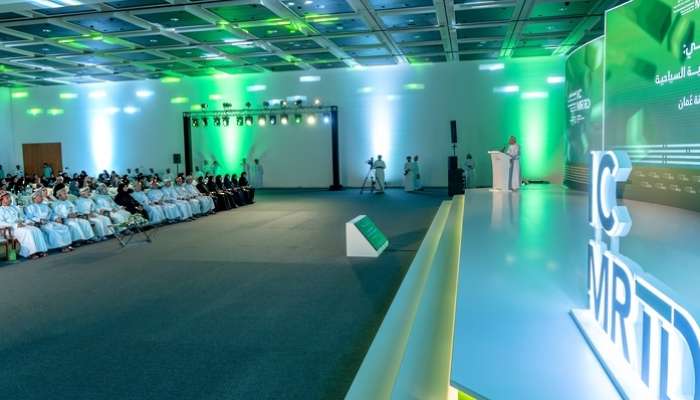
Manah: The International Conference “Museums and Their Role in Tourism Development" concluded its deliberations on Tuesday in the Wilayat of Manah, A’Dakhiliyah Governorate, under the patronage of Nasr Hamoud Al Kindi, Secretary General of the Royal Court Affairs and Chairman of the Board of Trustees of Oman Across Ages Museum.
Regarding museum and heritage institutions, the conference recommended enhancing the integrated management of cultural heritage through digital documentation, oral narratives, and institutional partnerships. This aims to establish museums as living memories and drivers of sustainable tourism and cultural development.
It also called for activating multilingual and multimedia museum programmes to enrich visitor experiences, expanding participation in national and international tourism routes linked to cultural identity, and integrating museums into tourism policies through models such as archaeological and heritage site museums and intangible museums. These efforts would bolster the community economy and preserve local cultural diversity.
In a statement delivered by Dr. Mohammed Ali Al Balushi, Chairman of the Scientific Committee, concerning museum economy and tourism, the conference emphasised consolidating the role of museums in urban and tourism planning as interactive creative hubs capable of stimulating local economies and creating educational and experiential tourism pathways.
It also recommended leveraging cultural entrepreneurship and digital transformation to develop smart museum models that generate sustainable income, support economic diversification within the cultural economy, and enhance participatory governance models and partnerships with the private sector and communities to improve museum investment efficiency and expand its tourism and social impact within the sustainable development agenda.
As for the cultural and educational role of museums, the conference recommended repurposing museums as interactive educational spaces that promote cultural citizenship and integrate multiculturalism into educational programmes and local curricula within a comprehensive societal vision.
It also advocated supporting mobile, scientific, and literary museums as alternative models to bridge learning gaps, connect visitors with knowledge and tourism experiences in marginalised environments and multicultural communities, and develop institutional partnerships between museums, educational institutions, and professional bodies to build technical capacities and produce quality cultural content that fosters integration between education and tourism.
As far as digital technologies in museum exhibitions and their tourism role are concerned, the conference recommended adopting integrated digital strategies based on artificial intelligence and other modern technologies to deepen visitor experiences and amplify the cultural and tourism impact of museum content.
It also called for using non-invasive analysis and documentation tools, such as multispectral imaging and digital modeling, to preserve collections and enhance museums' research and educational appeal.
Additionally, it emphasised integrating interactive digital storytelling into museum marketing, transforming historical figures into digital symbols that bridge memory and innovation while engaging the global digital-native audience.
Dr. Mohammed Ismail Al Nasrat, in his address on behalf of participants, highlighted Oman’s ancient history spanning thousands of years and its vibrant cultural treasures embodied in every museum, fort, and city. He noted that these institutions have proven not only to be guardians of memory but also key players in shaping the future of cultural tourism in the region and the world.
He emphasised Oman’s profound commitment to heritage and its relentless efforts to link heritage with development, serving as a model for transforming culture into an economic, social, and humanitarian asset.
The conference’s third theme, “The Cultural and Educational Role of Museums," featured several working papers discussing the educational and interactive experiences of contemporary museums.
Meanwhile, the fourth theme, “Digital Technologies in Museum Exhibitions and Their Role in Tourism," explored digital imaging, interactive guidance in museums, and artificial intelligence innovations.
Dr. Hashil Obaid Al Mahrouqi, CEO of Omran Group and the keynote speaker on the final day of the conference, delivered a lecture titled “Museums as Strategic Drivers of Tourism Growth."
He highlighted museums as one of the most important attractions for cultural and knowledge-seeking tourists, their role in boosting the tourism sector, and their connection to economic, social, and cultural development. He underscored their importance in attracting culturally oriented tourists, supporting local economies, and strengthening national identity, as well as their contribution to sustainable tourism development and the diversification of tourism products and experiences.
He also examined their role in reshaping cities as prime destinations, extending visitor stays, and stimulating year-round tourism spending.